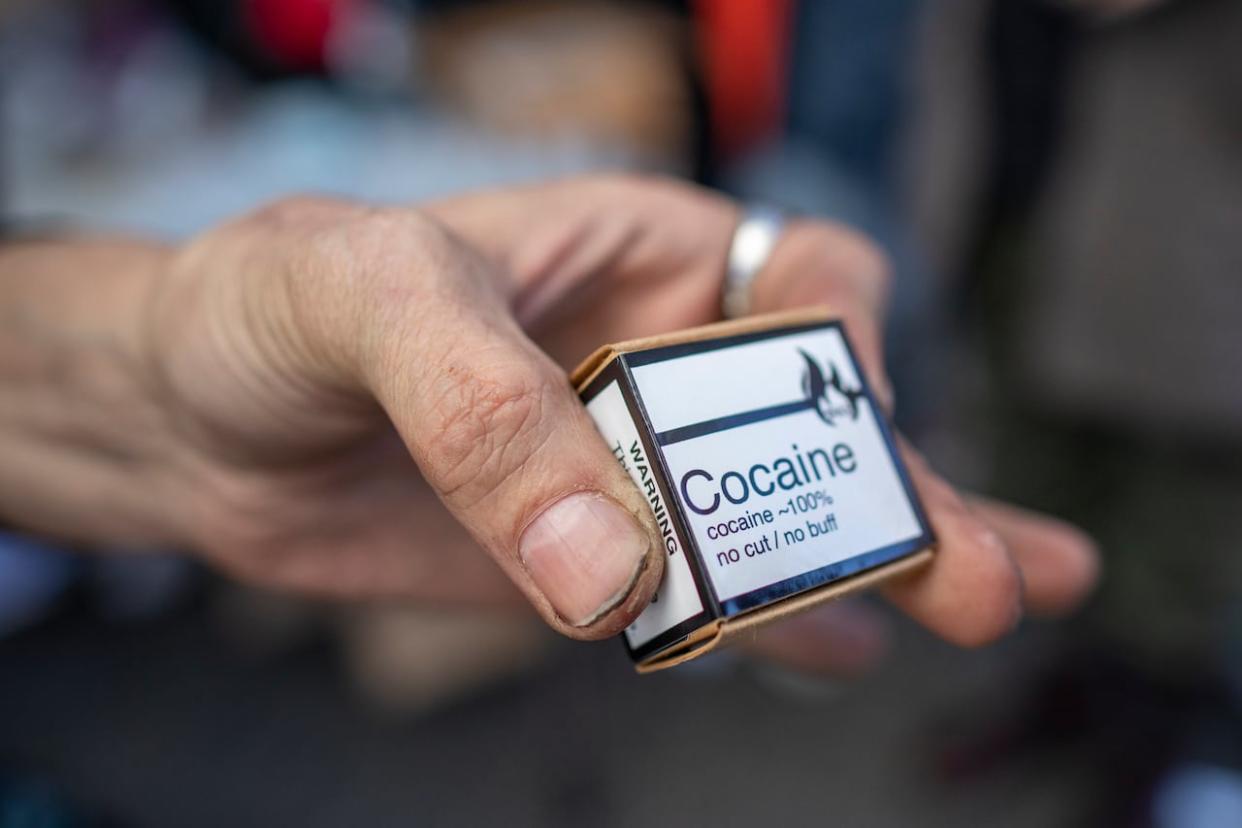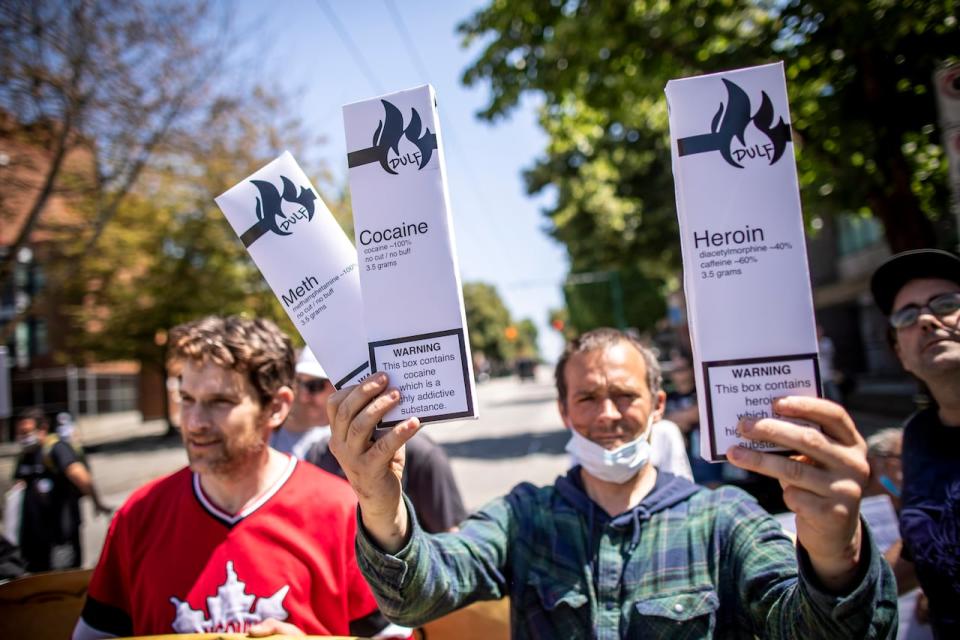Vancouver police arrest 2 after raids on Drug User Liberation Front

Vancouver police executed search warrants Wednesday at the office of the Drug User Liberation Front (DULF), an activist group that has admitted to distributing illegal drugs to substance users deemed at risk of overdosing.
The Vancouver Police Department (VPD) said two people were arrested after raids at the DULF office at East Hastings and Columbia streets, and at two East Vancouver homes where suspected cocaine, heroin and methamphetamine were seized.
The two individuals arrested were released Wednesday night and criminal charges, including possession for the purpose of trafficking, are being considered according to Insp. Phil Heard with the VPD's Organized Crime Section.
"While DULF's actions were intended to reduce the harms caused by toxic drugs, we have always warned that anyone who violates the Criminal Code or the Controlled Drugs and Substances Act could face enforcement and criminal charges," said Heard.
"This group has knowingly operated illegally in the Downtown Eastside and we have now taken action to stop it."
DULF says its compassion club model allows drug users to receive up to 14 grams of cocaine, heroin or methamphetamine per week, with the substances tested for safety before sale.
"These actions demonstrate the life-saving potential of a community-led response to the overdose crisis in Canada as a necessary alternative to prohibition and the unregulated drug supply," reads the DULF website.
The Drug User Liberation Front Society received $200,000 of public funding in 2021-22 from Vancouver Coastal Health, the regional health authority.

A man holds DULF boxes containing cocaine, meth and heroin that were given out during a safe supply event in Vancouver in 2021. (Ben Nelms/CBC)
DULF and the Vancouver Area Network of Drug Users requested the temporary Criminal Code exemption from Health Canada to operate a compassion club model for hard drugs in 2021, but was rejected. The application was backed by Vancouver city council, Vancouver Coastal health and experts from the B.C. Centre on Substance Use.
DULF co-founder Garth Mullins said the group was founded "because no one else was coming to save us."
"We asked Health Canada for permission to do it legally and they said no. None of us want to be outlaws in this but they forced us to. I can't believe two of my friends got arrested for saving lives," he said.
According to Mullins, the two people arrested were DULF co-founders Eris Nyx and Jeremy Kalicum.
B.C. is in its eighth year of a public health emergency that was declared over toxic-drug deaths in April 2016. Close to 13,000 people in the province have died from toxic drug overdoses since then.
According to the DULF website, a recent study by the organization found that of a sample of 43 people who sourced drugs through DULF, none had overdosed.
Mullins said with the DULF shutdown, clients of the organization will be forced to get their drugs on the street.
"I know a bunch of people who relied on [DULF] who are now going to have to go to the street supply — not a tested clean supply of drugs — they're going to have to go and take their chances with fentanyl off the street. So I'm worried about them," said Mullins.
DULF has said in the past it obtains the clean drugs it distributes from the dark web, where users can remain anonymous and illicit and illegal activity flourishes.
In the B.C. Legislature Thursday, B.C. United MLA Elenore Sturko said it was "outrageous" for the province to be funding an organization that buys illegal drugs on the dark web.
"Surely in the province of British Columbia there are other organizations that are not buying drugs on the dark web that you could have funded," she said.


